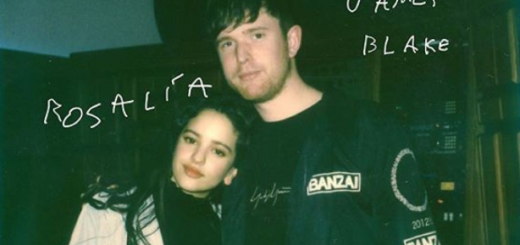LLYLM by Rosalía Lyrics Meaning – Unveiling The Layers of Love’s Illusion
Lyrics
Como quiero que me quiera
Hoy termina la condena
Me divierte
Maybe tú eres el que me libera
Y es que hoy es carnaval
Yo soy de aquí
Y tú eres de allá
Lo diré en inglés
Y me entenderás, mmh
I don’t need honesty
Baby, lie like you love me
Lie like you love me
Cover me in a dream
I’ll be yours or fantasy
Who needs the honesty?
Baby, lie like you love me
Lie like you love me
Maybe at the end
It becomes real enough for me
Oh, oh, oh, for me
Llevo coco, con canela
Perfumada
Escapemos, si es que quieres
Vengo en moto, soy una mami
Y si hay un día, hoy es ese día
Para ser y cambiar
O no ser y disfrazar
Your angel
You’re my vamp tonight
I don’t need honesty
Baby, lie like you love me
Lie like you love me
Cover me in a dream
I’ll be yours or fantasy
Who needs the honesty?
Baby, lie like you love me
Lie like you love me
Maybe at the end
It becomes real enough for me
Ay, dame esa
Esa pulsera de flores
Me la pondré en la muñeca
Cuando despierte
Así yo lo sabré
Así yo lo sabré
Yo sabré que fue real
Será mi tótem
Lo sabes tú y nadie más
I don’t need honesty
Baby, lie like you love me
Lie like you love me
Cover me in a dream
I’ll be yours or fantasy
Who needs the honesty?
Baby, lie like you love me
Lie like you love me
Maybe at the end
It becomes real enough for me
I don’t need honesty
Baby, lie like you love me
Lie like you love me
Cover me in a dream
I’ll be yours or fantasy
Who needs the honesty?
Baby, lie like you love me
Lie like you love me
Maybe at the end
It becomes real enough for me
Oh, oh, oh, for me
In the labyrinth of modern love, where the lines between reality and fantasy often blur, Rosalía’s ‘LLYLM’ emerges as a poignant exploration of the heart’s deepest yearnings. The Spanish sensation, known for her deft blend of traditional flamenco roots with avant-garde pop, delivers a track that is as enigmatic as it is evocative.
LLYLM, which stands for ‘Lie Like You Love Me,’ is a raw depiction of the complexities inherent in relationships and the human condition. It oscillates between desire for genuine connection and the allure of a comforting illusion. Here, we dive deep into the fabric of Rosalía’s intricate storytelling, unwinding the threads that compose this compelling narrative of love and self-deception.
The Paradox of Heart’s Desire: Craving Truth in a Web of Lies
The song’s opening lines, ‘El que quiero, no me quiere / Como quiero que me quiera,’ capture the universal longing for reciprocated love. Rosalía touches upon the paradox of desire: the person we yearn for may not crave us with the same intensity or in the way we dream of. This sets the stage for a tale of unrequited love, where the protagonist seeks solace in fantasy over the often harsh reality of emotional dissonance.
As she calls an end to her ‘condena’—her sentence—it’s as if Rosalía is granting herself a form of liberation. This self-awareness of unfulfillment becomes a powerful act of defiance against the emotional imprisonment of one-sided affection. Yet, in the same breath, she finds diversion in the possibility that ‘maybe tú eres el que me libera,’ clinging to the hope that her love interest might still be her savior.
Carnival of Illusion: Celebrating the Pretense
‘Y es que hoy es carnaval,’ Rosalía declares, marking a festive indulgence in masking one’s true self. Carnaval, a time when people don disguises and embrace alter egos, is the perfect metaphor for the song’s exploration of escapism and the bliss found in deception. The geographical distance implied by ‘Yo soy de aquí / Y tú eres de allá’ speaks to more than just physical separation—it symbolizes the emotional and experiential gulf that lies between two people, making genuine connection a challenge.
The repetition of the phrase ‘I don’t need honesty’ becomes a mantra for the singer, a deliberate choice to prioritize fantasy over the pain of reality. She implores her lover to ‘Lie like you love me,’ suggesting that sometimes, the sweetness of a lie can surpass the sting of the truth. The lover is invited to ‘Cover me in a dream,’ allowing Rosalía—and by extension, the listener—to temporarily dwell within a tantalizing fiction.
The Seductive Collision of Real and Unreal
In ‘LLYLM,’ the boundaries between what’s real and what’s fabricated become increasingly fluid. The potent line ‘Maybe at the end / It becomes real enough for me’ reveals the ambiguous nature of Rosalía’s quest. It’s a gamble—by immersing herself in the dream, she hopes that the facade will crystallize into reality.
This lyric epitomizes a quintessential human hope: that by investing in our fantasies, by loving them fiercely, we can transmute them into something tangible. It’s a modern-day alchemy, transforming the leaden weight of unfulfillment into a golden experience of imagined love, however fleeting that belief might be.
A Sartorial Elegy to Fantasy
Imagery plays a crucial part in Rosalía’s incantation of this dream world. ‘Llevo coco, con canela / Perfumada’ speaks to an olfactory allure, creating an aromatic trail symbolic of enchantment. This, coupled with the notion of ‘escapemos’—to escape—highlights the escapism theme, suggesting that true freedom might lie within the realms of fantasy.
Her reference to being a ‘mami’ riding a motorcycle fuses elements of feminine strength and rebellious spirit. The attire—the outfit of one’s alter ego—becomes a tool of transformation, capable of restructuring reality. ‘Para ser y cambiar / O no ser y disfrazar’ she sings, pondering the duality of existence: to be and change, or to not be and disguise.
The Totem of Reality: Holding onto the Fleeting Dream
The ‘pulsera de flores,’ a bracelet of flowers that Rosalía wishes to wear upon awakening, serves as a tangible memento of her lived fantasy. This emblem of reality mixed with the surreal, ‘Será mi tótem,’ she pronounces, acting as a personal relic that bears witness to the night’s events—real, imagined, or somewhere between.
Such artifacts remind us of the interlaced nature of truth and fiction in our own experiences of love and life. The plea ‘Así yo lo sabré / Yo sabré que fue real’ underscores the human need for evidence, for something to cling to, when all else is ephemeral. It’s a poignant reminder that what is ‘real enough for me’ is often just a matter of perspective, susceptible to the narratives we choose to believe and the lies we permit to envelop us.








